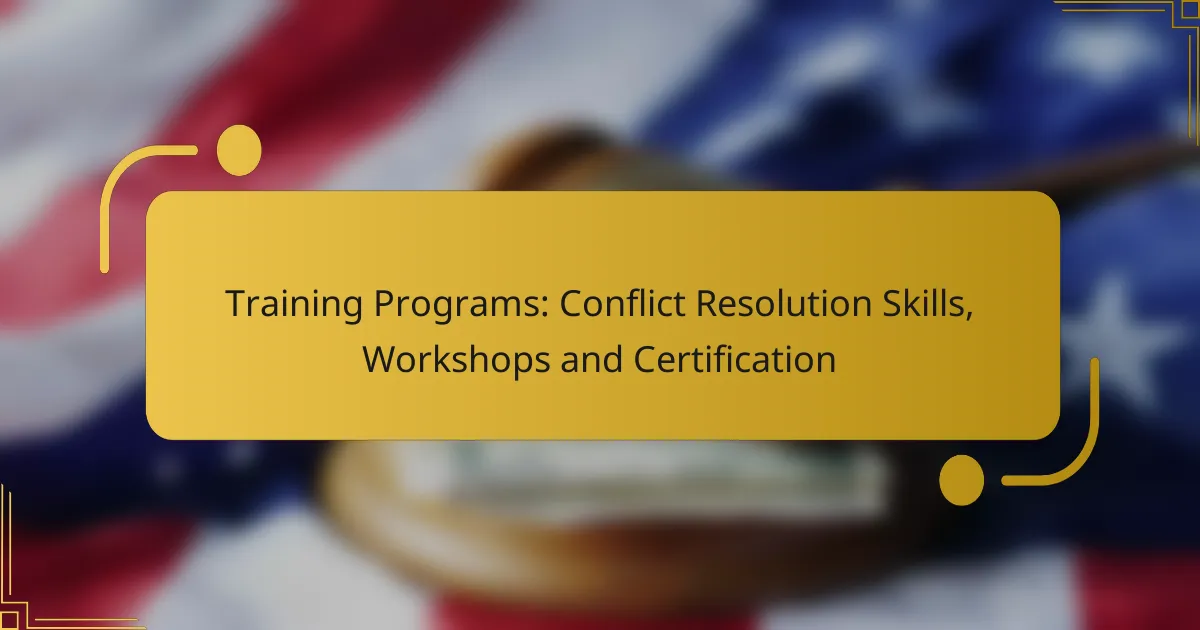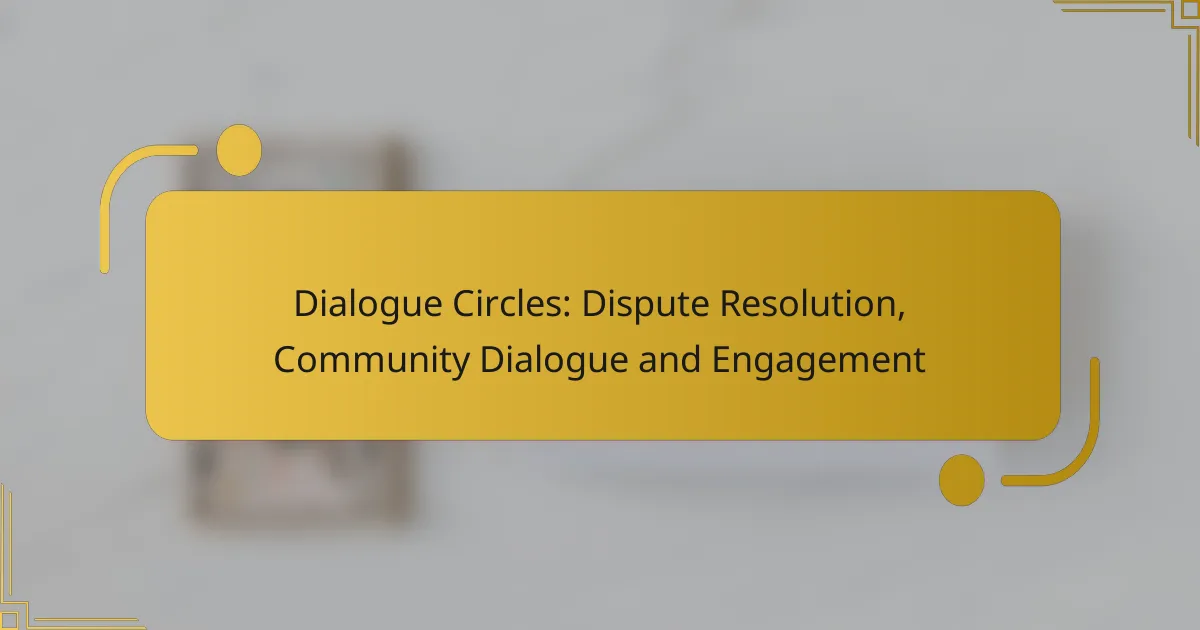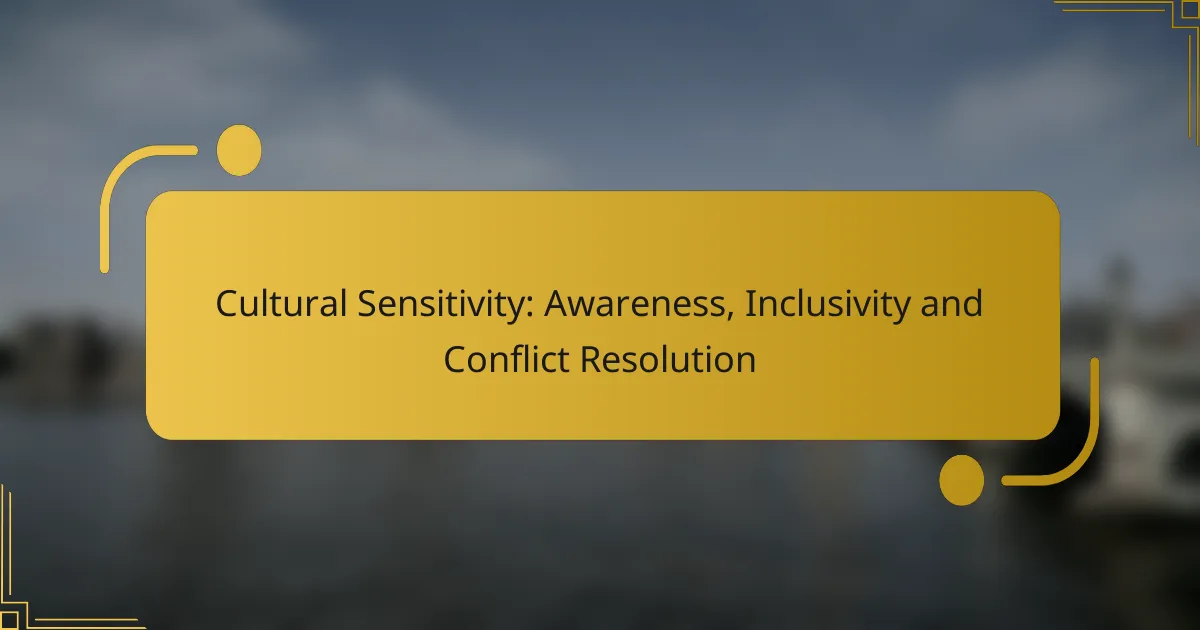Training programs in conflict resolution are designed to equip individuals with essential skills for managing and resolving disputes effectively. Through workshops and certifications, participants gain practical techniques in communication, emotional understanding, and negotiation, which are vital for fostering positive interpersonal interactions in various professional settings.
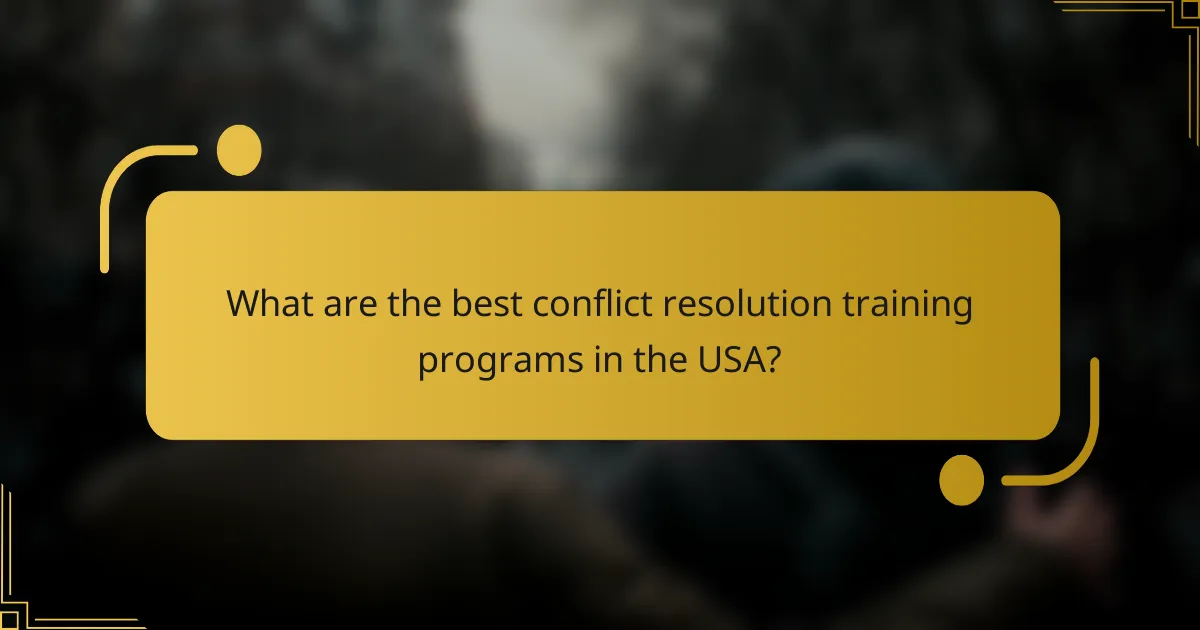
What are the best conflict resolution training programs in the USA?
The best conflict resolution training programs in the USA focus on equipping individuals with practical skills to manage and resolve disputes effectively. These programs often include workshops, certifications, and specialized training that cater to various professional needs.
Harvard Negotiation Institute
The Harvard Negotiation Institute offers renowned programs that emphasize negotiation and conflict resolution strategies. Participants learn from leading experts and engage in simulations that mirror real-life scenarios, enhancing their ability to navigate complex interpersonal dynamics.
Courses typically range from a few days to several weeks, allowing flexibility for busy professionals. Graduates often report improved negotiation outcomes and enhanced communication skills, making this program a valuable investment for those in leadership roles.
University of California, Irvine – Conflict Resolution Certificate
The University of California, Irvine provides a comprehensive Conflict Resolution Certificate program designed for individuals seeking to deepen their understanding of conflict management. This program covers key theories and practical applications, including mediation and negotiation techniques.
Participants can complete the certificate in about six months, with options for online or in-person classes. This flexibility makes it accessible for working professionals, and the curriculum is aligned with industry standards, ensuring relevance in various fields.
American Management Association Workshops
The American Management Association (AMA) offers workshops focused on conflict resolution skills tailored for managers and team leaders. These workshops are interactive and include role-playing exercises that help participants practice resolving conflicts in a controlled environment.
Workshops typically last one to two days and cover essential topics such as effective communication, emotional intelligence, and negotiation tactics. Attendees leave with actionable strategies to apply in their workplaces, making these workshops a practical choice for immediate skill enhancement.
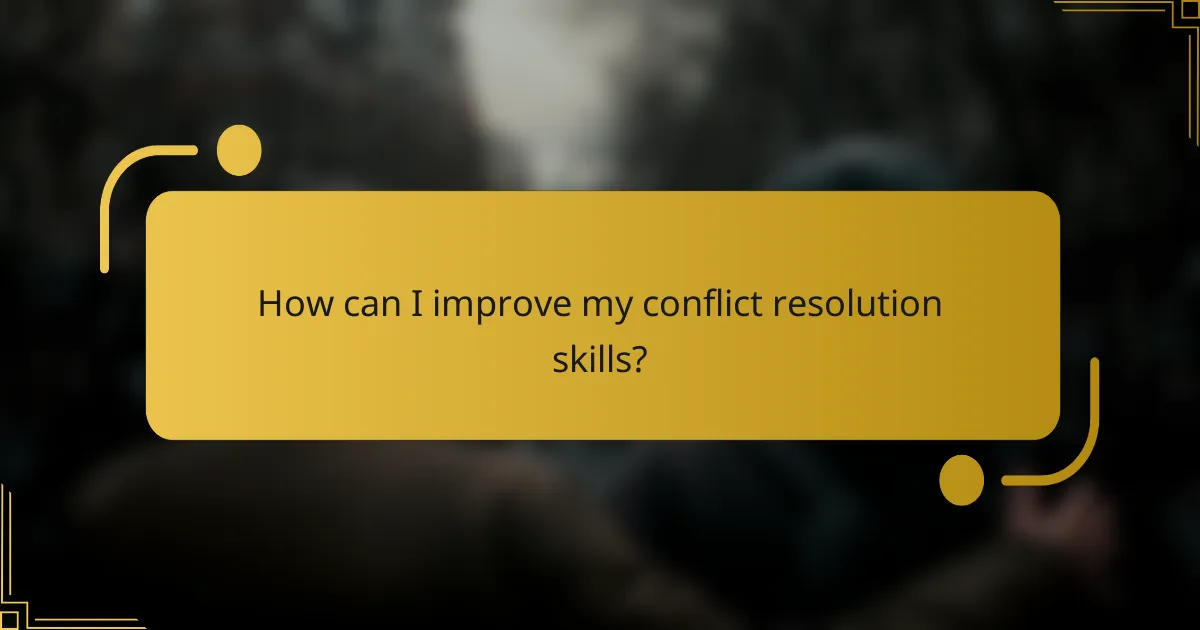
How can I improve my conflict resolution skills?
Improving conflict resolution skills involves developing effective communication techniques, understanding emotions, and mastering negotiation tactics. These skills can be enhanced through targeted training programs, workshops, and certifications that focus on practical applications in real-world scenarios.
Active listening techniques
Active listening is crucial for resolving conflicts as it ensures that all parties feel heard and understood. This involves fully concentrating on the speaker, acknowledging their message, and responding thoughtfully. Techniques include paraphrasing what the other person has said and asking clarifying questions to demonstrate engagement.
To practice active listening, try to maintain eye contact, nod in agreement, and avoid interrupting. A simple exercise is to summarize the speaker’s points before responding, which can help clarify misunderstandings and foster a collaborative atmosphere.
Emotional intelligence development
Emotional intelligence (EI) is the ability to recognize, understand, and manage your own emotions while also empathizing with others. Developing EI can significantly enhance conflict resolution skills by allowing individuals to navigate emotional dynamics effectively. This can be achieved through self-reflection, mindfulness practices, and feedback from peers.
To improve your emotional intelligence, consider keeping a journal to track your emotional responses and reactions in various situations. Engaging in role-playing exercises can also help you practice empathy and understand different perspectives, which is vital in conflict situations.
Negotiation strategies
Effective negotiation strategies are essential for resolving conflicts amicably. Approaches such as interest-based negotiation focus on mutual benefits rather than positions, encouraging collaboration. Key strategies include identifying common goals, being open to compromise, and maintaining a respectful tone throughout discussions.
When negotiating, prepare by researching the interests of all parties involved. Aim for win-win solutions where possible, and be ready to explore alternative options if initial proposals are rejected. Practicing these strategies in low-stakes situations can build confidence for more significant negotiations in the future.
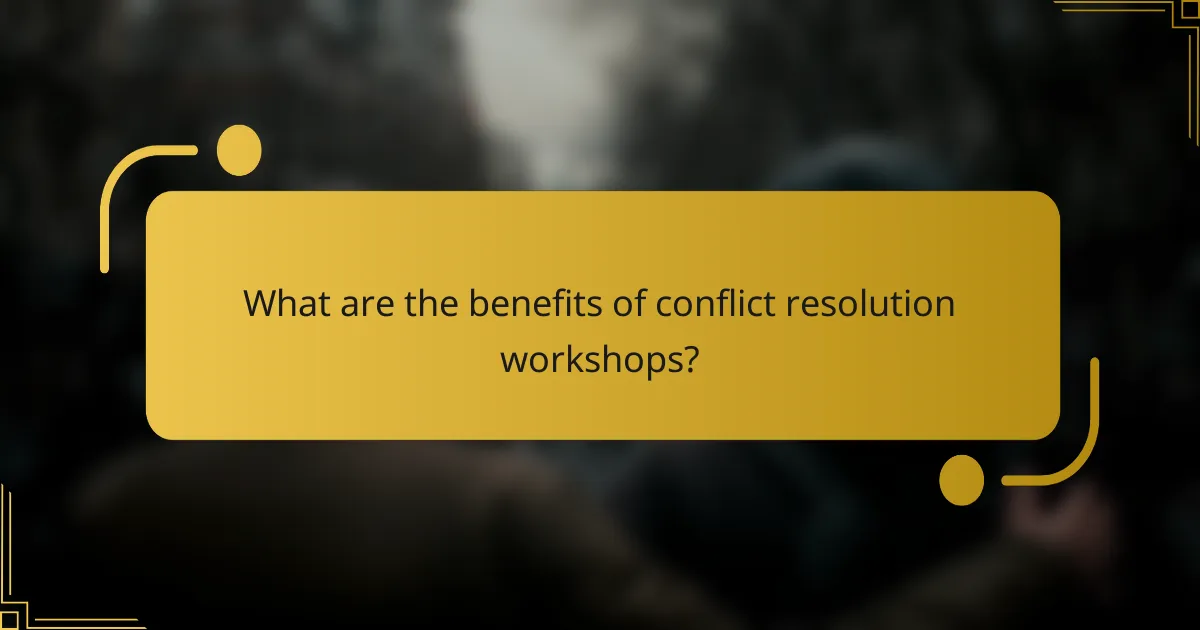
What are the benefits of conflict resolution workshops?
Conflict resolution workshops provide essential skills that enhance interpersonal interactions, leading to more effective communication and collaboration. Participants learn techniques to manage disagreements constructively, which can significantly improve workplace relationships and overall morale.
Enhanced communication skills
Conflict resolution workshops focus on developing communication skills that are crucial for addressing and resolving disputes. Participants learn to express their thoughts clearly and listen actively, which fosters an environment of mutual respect. Techniques such as active listening and assertive communication are emphasized, enabling individuals to articulate their needs without escalating tensions.
Practicing these skills in a workshop setting allows participants to receive immediate feedback, making it easier to identify areas for improvement. Role-playing scenarios can be particularly effective, as they simulate real-life situations where communication skills are put to the test.
Improved team dynamics
Workshops aimed at conflict resolution can transform team dynamics by promoting a culture of collaboration and understanding. When team members learn to navigate conflicts effectively, they are more likely to work together harmoniously, leading to stronger relationships and a more cohesive work environment. This shift can reduce the likelihood of misunderstandings and foster a sense of belonging among team members.
Additionally, improved team dynamics can lead to a more open atmosphere where individuals feel comfortable sharing ideas and concerns. This openness can enhance creativity and innovation, as team members are encouraged to contribute without fear of conflict.
Increased productivity
By equipping employees with conflict resolution skills, organizations can see a marked increase in productivity. When conflicts are managed effectively, time spent on disputes is minimized, allowing teams to focus on their core tasks. This efficiency can lead to faster project completion and improved overall performance.
Moreover, a workplace that effectively resolves conflicts tends to have higher employee satisfaction, which correlates with lower turnover rates. Satisfied employees are generally more engaged and motivated, contributing positively to the organization’s goals and objectives.
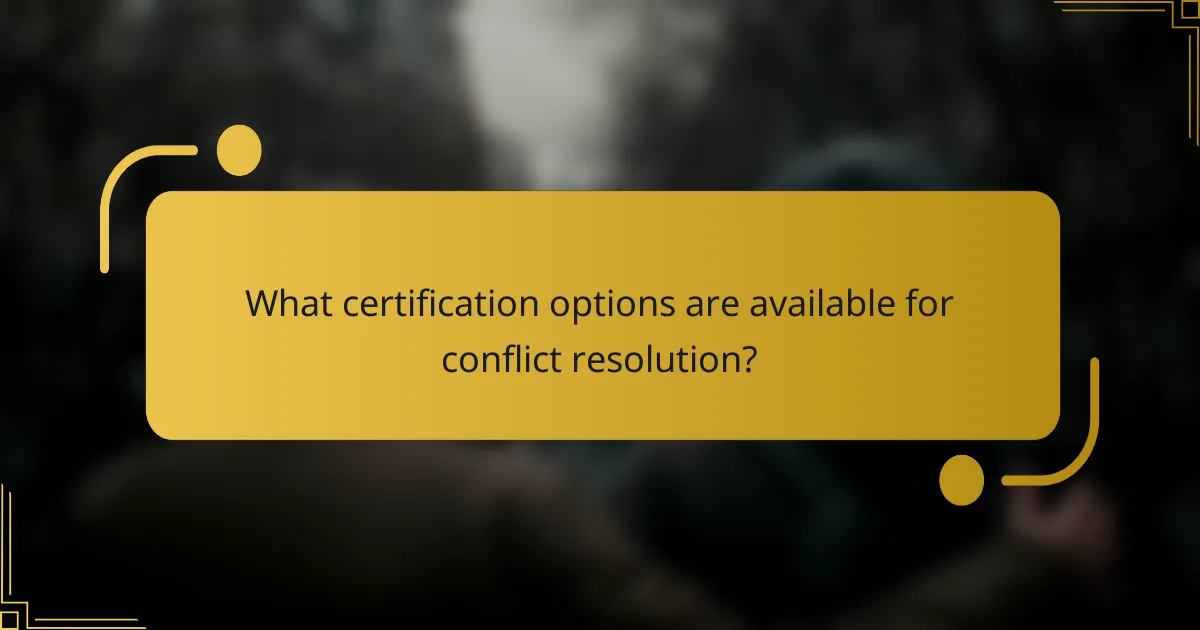
What certification options are available for conflict resolution?
Various certification options exist for conflict resolution, catering to professionals seeking to enhance their skills and credentials. These certifications can improve employability and provide practical tools for effectively managing disputes in various settings.
Certified Conflict Resolution Professional (CCRP)
The Certified Conflict Resolution Professional (CCRP) certification is designed for individuals looking to establish themselves as experts in conflict resolution. This program typically requires completion of a training course, followed by an examination to assess knowledge and skills.
Participants often engage in workshops that cover negotiation techniques, mediation strategies, and communication skills. The certification is recognized across various industries, making it a valuable asset for career advancement.
National Conflict Resolution Center Certification
The National Conflict Resolution Center offers a certification program that focuses on practical conflict resolution skills applicable in diverse environments. This certification emphasizes mediation and negotiation, providing participants with hands-on experience through role-playing and case studies.
To obtain this certification, candidates usually need to complete a series of workshops and demonstrate their competency through assessments. This program is particularly beneficial for those working in human resources, legal, or community mediation roles.
Society for Human Resource Management (SHRM) Certification
The Society for Human Resource Management (SHRM) offers certifications that include conflict resolution as a key component of effective HR management. These certifications focus on equipping HR professionals with the skills necessary to resolve workplace conflicts and foster a positive work environment.
SHRM certification programs often require candidates to complete specific coursework and pass an exam. This certification is widely recognized in the HR field and can significantly enhance a professional’s credibility and career prospects.
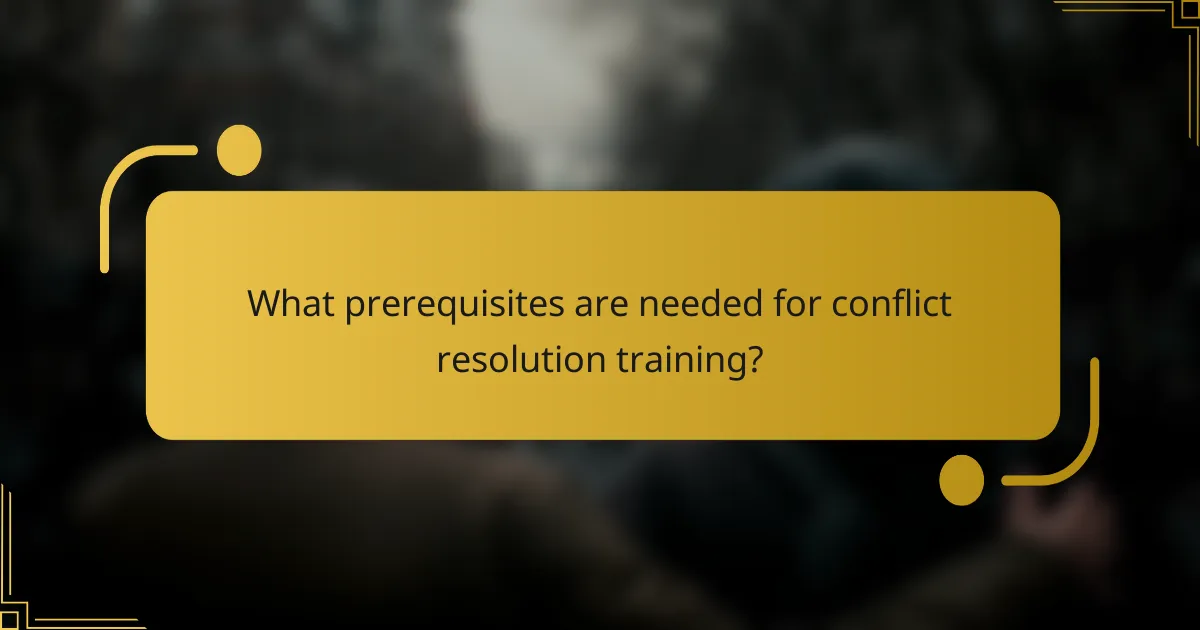
What prerequisites are needed for conflict resolution training?
To participate in conflict resolution training, individuals typically need basic communication skills and a willingness to engage in role-playing exercises. These prerequisites help ensure that participants can effectively learn and apply conflict resolution techniques.
Basic communication skills
Basic communication skills are essential for conflict resolution training as they enable participants to express their thoughts clearly and listen actively. Skills such as articulating needs, providing feedback, and understanding non-verbal cues are crucial for navigating conflicts.
Participants should practice techniques like active listening, paraphrasing, and asking open-ended questions. These skills not only facilitate better understanding but also foster a more collaborative atmosphere during conflict resolution scenarios.
Willingness to engage in role-playing
A willingness to engage in role-playing is vital for effective conflict resolution training. Role-playing allows participants to simulate real-life conflict situations, providing a safe environment to practice and refine their skills.
During these exercises, individuals can experiment with different approaches to conflict resolution, receive constructive feedback, and learn from their peers. Embracing this aspect of training enhances learning outcomes and prepares participants for actual conflicts they may encounter in personal or professional settings.
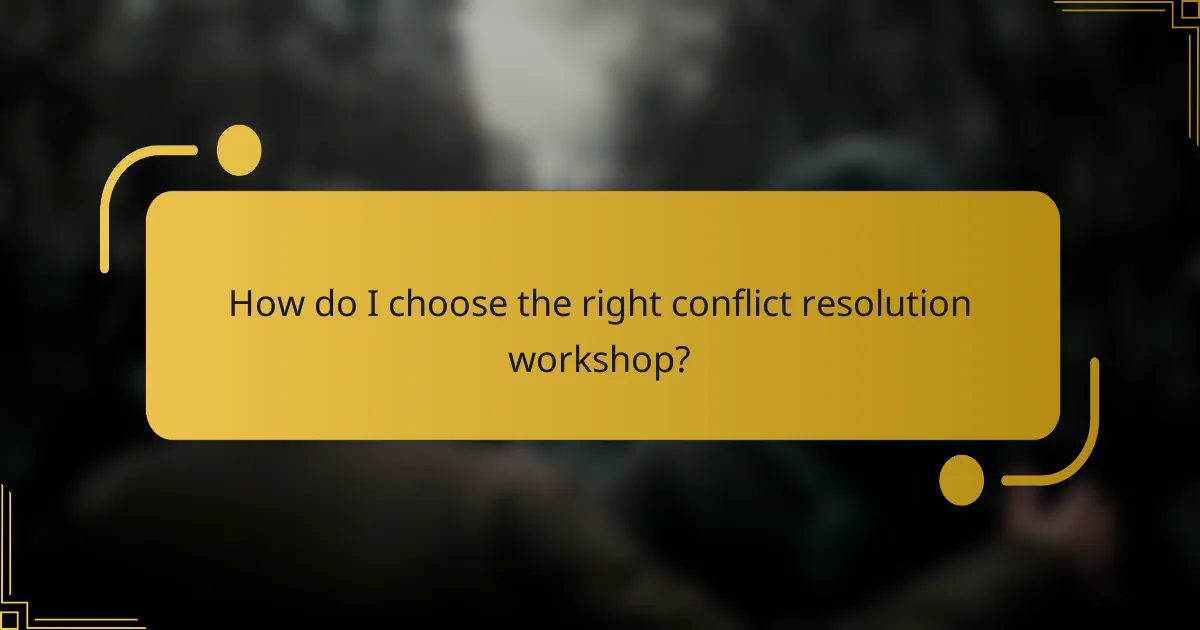
How do I choose the right conflict resolution workshop?
To choose the right conflict resolution workshop, consider factors such as the workshop’s duration, format, and the qualifications of the instructor. Evaluating participant reviews can also provide insight into the effectiveness and relevance of the workshop.
Assess workshop duration and format
Workshop duration can vary significantly, typically ranging from a few hours to several days. Shorter workshops may offer a condensed overview, while longer sessions often provide in-depth training and practical exercises.
Consider the format as well; options may include in-person, virtual, or hybrid models. Choose a format that aligns with your learning preferences and schedule, ensuring it fits your availability and engagement style.
Check instructor qualifications
Instructor qualifications are crucial for effective learning. Look for trainers with relevant experience in conflict resolution, such as certifications or degrees in mediation, psychology, or related fields.
Additionally, consider their teaching experience and any specific methodologies they employ. A qualified instructor should be able to demonstrate a successful track record in facilitating conflict resolution training.
Read participant reviews
Participant reviews can provide valuable insights into the workshop’s quality and effectiveness. Look for feedback on the content, delivery, and practical applications of the skills taught.
Pay attention to both positive and negative reviews to get a balanced perspective. Online platforms or professional networks can be useful for finding authentic testimonials from past attendees.
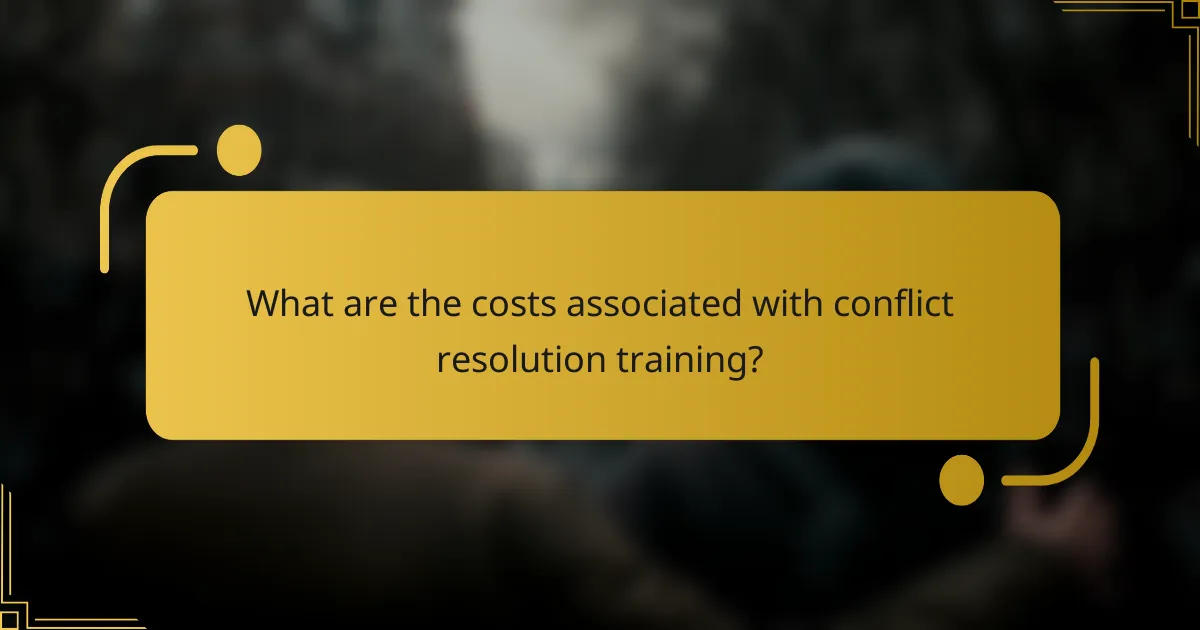
What are the costs associated with conflict resolution training?
The costs of conflict resolution training can vary widely based on factors such as the format, duration, and provider. Generally, organizations can expect to spend anywhere from a few hundred to several thousand dollars per participant, depending on the complexity and depth of the training offered.
Types of conflict resolution training programs
Conflict resolution training programs come in various formats, including workshops, online courses, and certification programs. Workshops typically range from one to three days and may cost between 300-1,500 USD per participant. Online courses can be more affordable, often priced between 100-500 USD, while certification programs may require a larger investment, sometimes exceeding 2,000 USD.
When selecting a program, consider the specific skills you want to develop, such as negotiation techniques or mediation strategies. Tailored programs may be more expensive but can provide targeted training that meets your organization’s unique needs.
Factors influencing training costs
Several factors can influence the costs of conflict resolution training, including the trainer’s expertise, location, and the number of participants. Experienced trainers with a strong track record may charge higher fees, while local providers might offer more competitive rates.
The training format also affects costs. In-person workshops often incur additional expenses for venue rental and materials, while online courses may have lower overhead. Additionally, group discounts may be available for organizations enrolling multiple participants, which can help reduce overall costs.
Budgeting for conflict resolution training
When budgeting for conflict resolution training, it’s essential to account for all associated costs, including travel, accommodation, and materials. A comprehensive budget should also include potential follow-up sessions or additional resources needed to reinforce the training.
Consider setting aside a portion of your training budget specifically for conflict resolution skills, as these competencies can lead to improved workplace dynamics and productivity. Investing in this training can yield significant long-term benefits, making it a worthwhile expenditure for many organizations.
